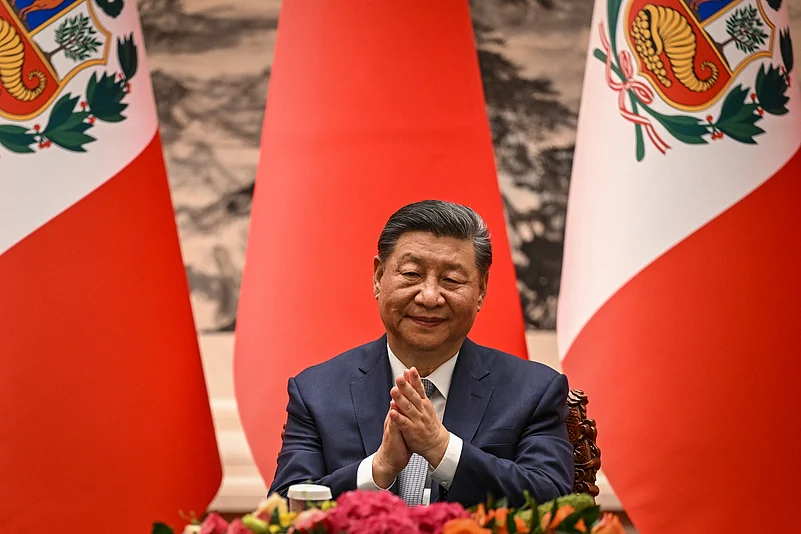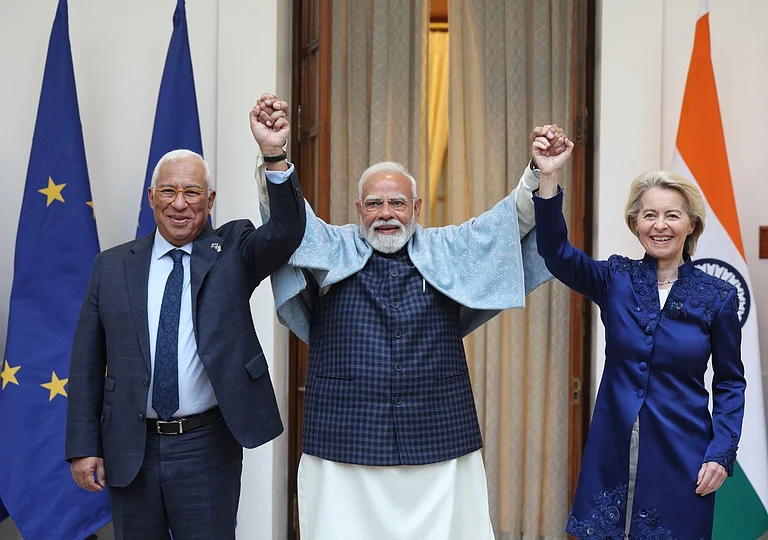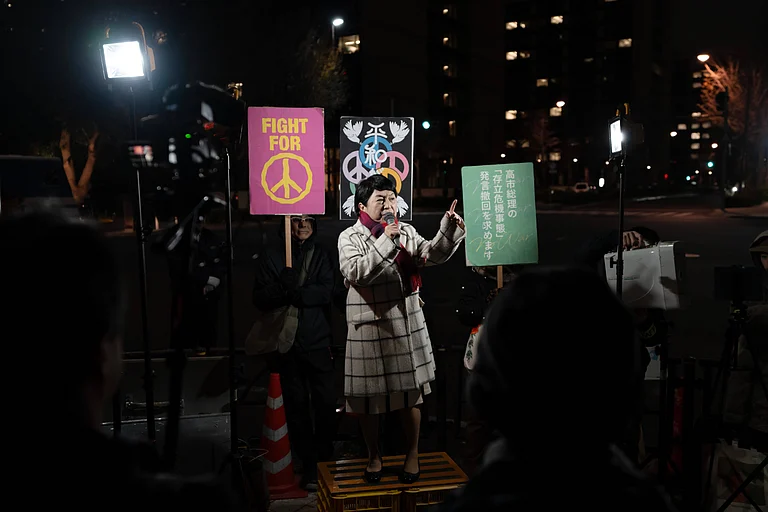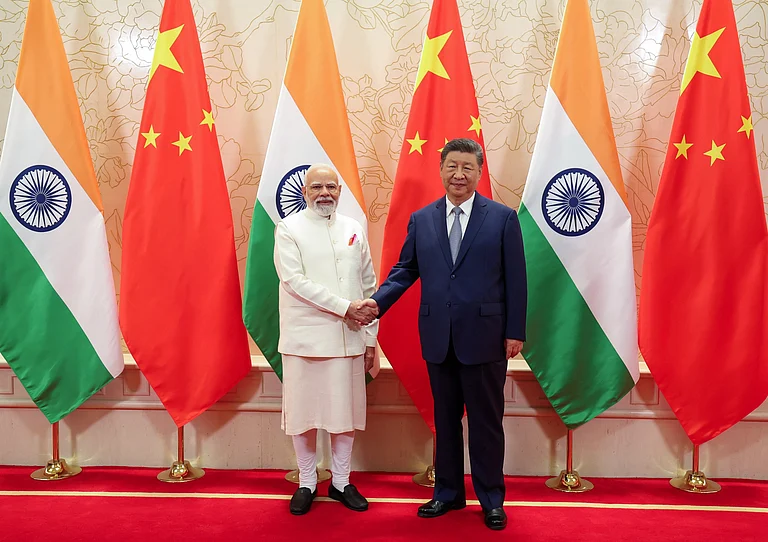Chinese President Xi Jinping on Friday pointed at the relevance of the Five Principles of Peaceful Coexistence, which came to the fore during the Non-Aligned Movement, to put an end to the present-day conflicts, seeking to expand influence on the Global South.
The Five Principles of Peaceful Coexistence, termed as Panchsheel by India, was brought by the 71-year-old leader during a conference in Beijing to mark its 70th anniversary. Xi sought to compare them with his new concept of Global Security Initiative, foreseeing a shared future of mankind.
According to the Ministry of External Affairs, the Panchsheel pointers were first formally articulated on April 9, 1954 when the Agreement on Trade and Intercourse between the Tibet region of China and India was signed.
These five principles were a part of the legacy of the then Prime Minister Jawaharlal Nehru and his Chinese counterpart Zhou Enlai in their unsuccessful attempt to find a solution for the tense boundary issue.
Xi said, "The Five Principles of Peaceful Coexistence answered the call of the times, and its initiation was an inevitable historic development. The Chinese leadership in the past specified the Five Principles in their entirety for the first time, namely, ‘mutual respect for sovereignty and territorial integrity’, ‘mutual non-aggression’, ‘mutual non-interference in each other’s internal affairs’, ‘equality and mutual benefit’, and ‘peaceful coexistence’."
He said that the Panchsheel was included in the China-India, China-Myanmar joint statements, which together called for making them the basic norms for state-to-state relations.
Sri Lankan President Mahinda Rajapaksa and several other political leaders from countries who have been closely connected to China over the years were among those invited to the conference.
Though the five principles originated in Asia, they quickly took over the global stage. In 1955, over 20 Asian and African countries attended the Bandung Conference, Xi said in his address.
“The Five Principles have set a historic benchmark for international relations and international rule of law,” he said, highlighting their relevance to ending the present-day conflicts.
Xi said that the five principles fully conform with those of the United Nations Charter, notably with the growing trend of international relations of our times, and with the fundamental interests of all nations.
The Chinese President, who entered his third term at the position last year, has been advocating for several initiatives, including his billion-dollar pet project -- the Belt and Road Initiative (BRI) -- and others to enhance China's global influence.
Beijing has made massive investments in infrastructure projects in smaller countries under the BRI, which in later years saw allegations of debt diplomacy as many of these nations struggled to pay China back.
With strategic competition from the West -- the United States and the European Union -- China has been jostling with India and other developing countries to unite its influence in the Asian, African and Latin American counties, largely called Global South.
China will establish a Global South Research Centre to better support Global South-South cooperation, Xi said.
He said that China will provide 1,000 ‘Five Principles of Peaceful Coexistence Scholarship of Excellence,’ 1,00,000 training opportunities to Global South countries in the next five years, adding that it will also launch a 'Global South Youth Leaders' programme.
(With PTI inputs)


























